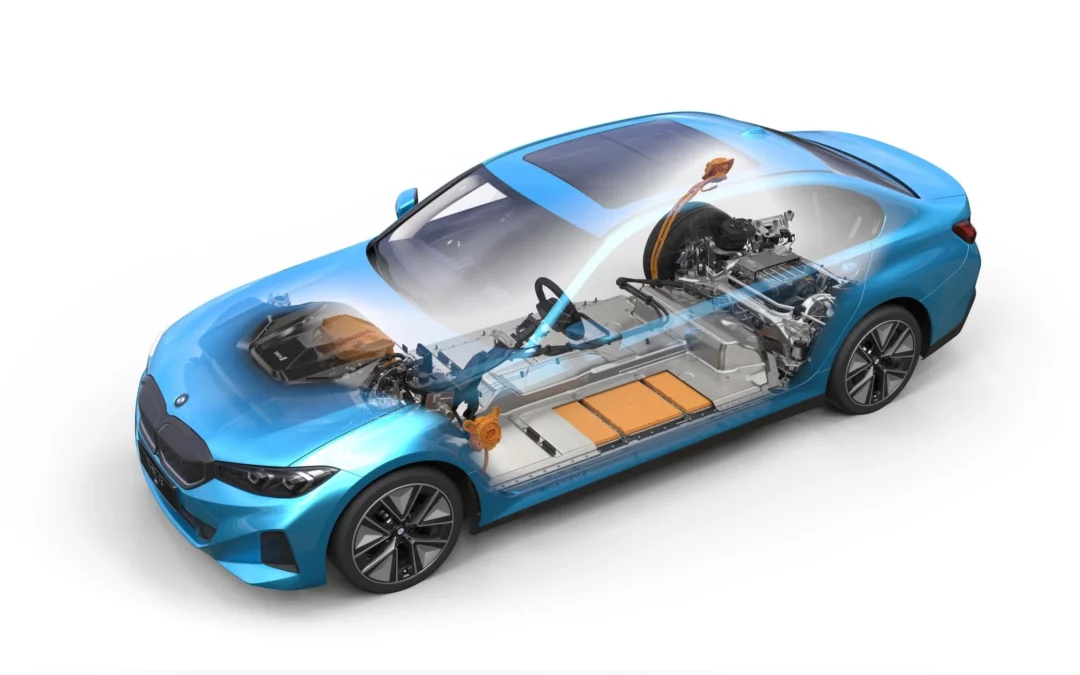BMW unveiled the inaugural prototype of its forthcoming range of electric vehicles, marking a significant milestone in its endeavor to narrow the gap with Tesla and safeguard its sales in the critical Chinese market.
The Vision Neue Klasse concept car, which will be exhibited at the next IAA show in Munich, showcases BMW’s forthcoming electric vehicle platform that is expected to be launched in 2025. This development coincides with Mercedes-Benz Group’s plans to introduce its own lineup of electric vehicles during the same period.
The progress of major Porsche and Audi automobiles has been postponed due to software complications experienced by Volkswagen in implementing comparable designs.
RELATED: The Future Of Electric Vehicles Is This 44-Year-Old Pickup Truck
BMW is departing from a long-standing convention of primarily promoting the performance aspects of its “ultimate driving machines” by introducing a stylish coupe.
In contrast, the vehicle is promoting a digital display that is projected across the entire width of the windshield, together with software capable of interpreting voice instructions and hand gestures.

The decision is a recognition of the growing preference among Chinese consumers for domestic manufacturers like BYD and Nio, which have demonstrated superior capabilities in producing electric vehicles (EVs) equipped with features tailored to local preferences.
According to the chief executive, Oliver Zipse, the Neue Klasse is expected to establish a trajectory for the forthcoming decades.
The sales of premium combustion-engine cars in China have traditionally been dominated by BMW, Mercedes, and Audi. However, these companies have faced challenges due to the rapid transition of the Chinese market towards electric vehicles (EVs).
RELATED: Electric Cars May Be Able To Save The US Power Grid
In the current year, BYD has surpassed Volkswagen as the leading automobile manufacturer in China, while Mercedes has just reduced the costs of its primary electric sedan in response to underwhelming sales in the region.

It is anticipated that electric vehicles (EVs) and plug-in hybrids would constitute around 90% of the global automobile market by the conclusion of this decade. This development necessitates that premium brands from Western countries expedite the introduction of their respective offerings in order to remain competitive. The initiation of a price war in China by Tesla has additionally intensified the competitive environment.
According to Mr. Zipse’s statement to reporters in Munich, BMW is seeing growth in China, particularly in the electric car sector. The company’s place in the luxury class has shielded it from the impacts of the price war.
According to the speaker, the Neue Klasse is anticipated to generate higher profits compared to the company’s existing range of electric vehicles.
RELATED: Honda Teases Upcoming Prologue, Its First Electric SUV To Be Sold In The US

The Neue Klasse models of BMW are anticipated to possess a maximum range of approximately 800km and exhibit a charging capability that allows for a recharge from 10% to 80% within a time frame of less than thirty minutes. However, it is worth noting that these figures may not position them as the most superior option within their class. In the previous year, Mercedes successfully demonstrated the capabilities of an electric prototype by achieving a distance of over 1,000km on a solitary charge.
However, according to a recent consumer survey conducted by consultant firm AlixPartners, BMW maintains its position as the second highest-ranking automotive brand in China in terms of technological elements incorporated within its vehicles. In the ranking, BMW was positioned after Geely’s Zeekr but ahead of Xpeng, Tesla, and VW.
In spite of the recent emphasis on digital attributes, BMW will not completely abandon its brand traditions. According to Mr. Zipse, the Neue Klasse is anticipated to provide a more enjoyable driving experience at higher velocities compared to several rival electric vehicles, despite the prevalent availability of rapid acceleration in most contemporary EVs.
According to his statement, there is a persistent belief in the potential for effecting change in the drivetrain dynamics.
Download The Radiant App To Start Watching!
Web: Watch Now
LGTV™: Download
ROKU™: Download
XBox™: Download
Samsung TV™: Download
Amazon Fire TV™: Download
Android TV™: Download

